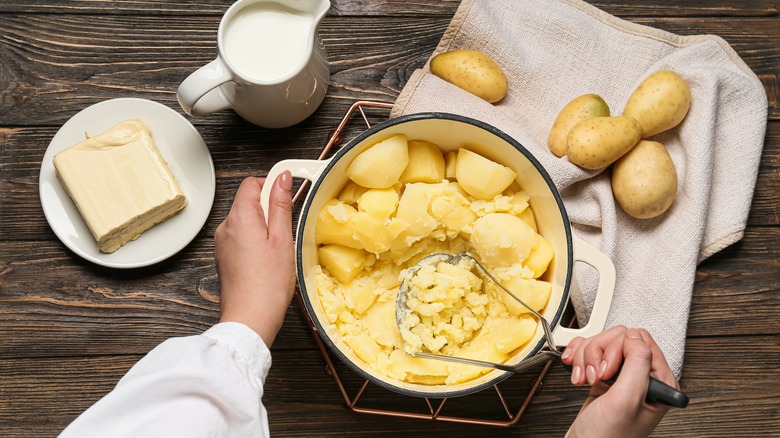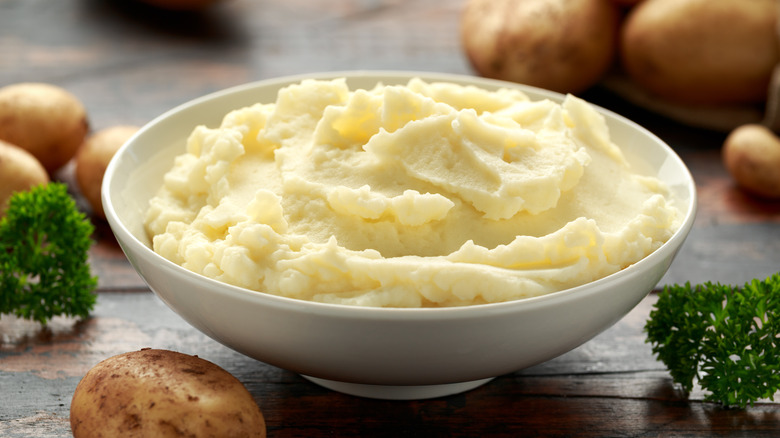Why You Should Always Start With Cold Water When Cooking Mashed Potatoes
Few common kitchen ingredients are tastier — or more dependable — than potatoes, which tend to delight the palate whether served as French fries, potato salad, roasted potatoes, breakfast potatoes, or any other potato dish. This staple starch is an affordable way to bulk out home-cooked meals (via Healthline), with a delightful texture that ranges from crispy to creamy depending on how the potatoes are cooked.
And if creamy is what you're after with potatoes, it's hard to think of a dish more likely to satisfy than mashed potatoes. Typically a simple yet delicious combination of boiled potatoes, butter, and milk or cream, mashed potatoes are a classic side dish that seems to go with everything from a holiday roasted turkey to everyday comfort food such as juicy meatloaf. Mashed potatoes are quite easy to make, but it's still possible to make mashing mistakes: Over-mixing can lead to glueiness, for example, and going too light on the salt can leave them flavorless. And if you've ever started your cubed potatoes in hot water rather than cold, read on, because you're not going to want to commit that error the next time you prepare this dish.
Mashed potatoes need to be started in cold water to cook evenly
When simmering or boiling vegetables, most of us tend to drop whatever ingredient we're cooking right into the hot water, with that initial step marking the beginning of the cook time. But when making mashed potatoes, following that formula can result in unevenly cooked potatoes that overcook on the outside and remain firm on the inside.
As explained by The Kitchn, it's important to start mashed potatoes in cold water, dropping your diced potatoes in cool or room temperature water and then bringing it up to boiling before dropping to a simmer. As the temperature of the water climbs, the cubed potatoes will cook evenly all the way through, as opposed to becoming too soft on the outside and staying too hard on the inside — which would lead to an unevenly textured and unappetizing mash.
So next time you whip up this classic dish, make sure not to overlook this crucial step.

